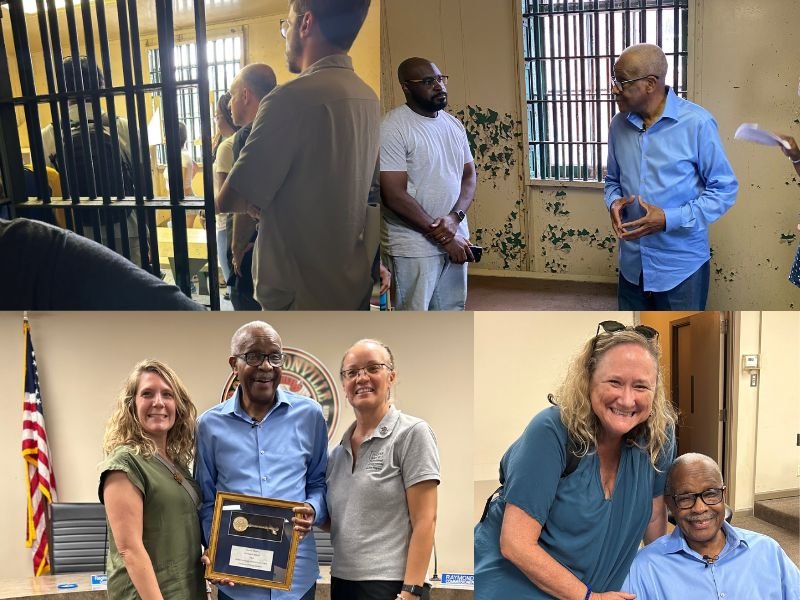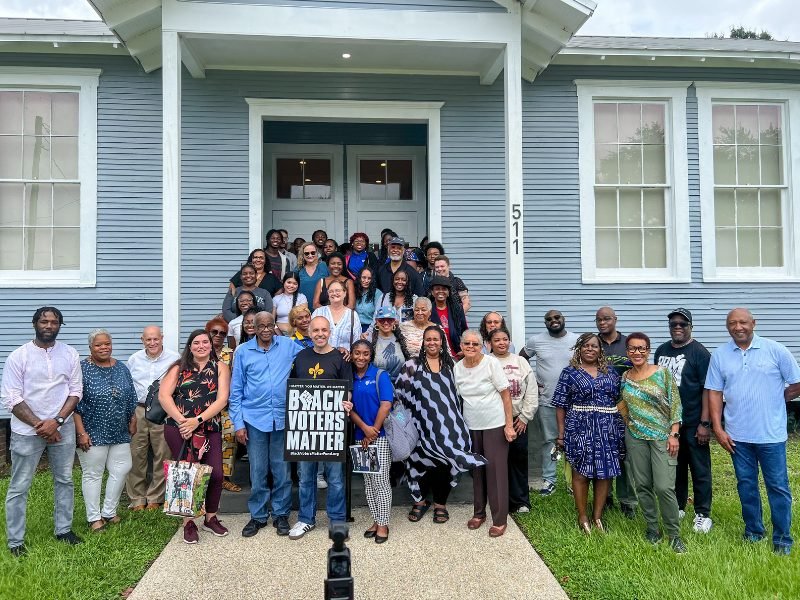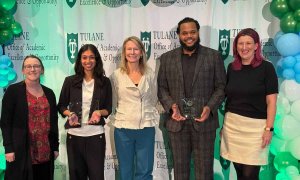Tulane joins local universities for civil rights tour
Editor’s note: This article was originally printed in New Orleans Data News Weekly.
In 1963, 22-year-old Ronnie Moore and 300 other young activists were arrested in Plaquemine. Moore and nine others were detained at the Donaldsonville jail during the Civil Rights Movement in Louisiana. The story of these young activists was revisited for a new generation of college students through the ongoing work of the Amistad Research Center. Moore shared his experiences in the movement with students from Tulane University, Loyola University, and Dillard University, 61 years later at a tour of primary documents on Friday, Aug. 30.
“We were thinking of ways in which we can engage our posterity into a live experience of history,” Moore said of the tour he led with college students, where students visited the Historic Donaldsonville Jail and met with the Sheriff of Ascension Parish.
A young Moore connected with W.W. Harlow, Dr. Bertrand Tyson, Rev. Jetson Davis, and James Farmer, who was then the National Director of Congress of Racial Equality. They were all placed in jail with him in Plaquemine. Farmer was chosen to introduce Dr . Martin Luther King Jr. to speak just a few days later on Aug. 28, 1963. That historic moment would be known as the March on Washington, where Dr. King delivered his famous “I Have a Dream” speech. Students were able to visit the jail with Moore, which was once a slave depot, at the River Road African American Museum located in Donaldsonville, Louisiana. Here, the group got a closer glimpse into the experience faced by Moore and other young activists in the state.
“You just can’t do it in the classroom alone, so we went to the jail where it happened 61 years ago, in order that the students might be able to touch history,” Moore said. “It’s one thing to read about it. It’s another to touch it. The more senses we can involve in the learning process, the greater the impact of the learning.”
The students viewed the “Louisiana Diary” documentary that spotlights the work of the Congress of Racial Equity (CORE) to register voters in the summer of 1963 . “The Civil Rights Movement is continuing today because the battle for the ballet that was in 1963 is still the battle for the ballet in 2024,” Moore said. “We must maximize our access to the ballet and stir up the next generation to vote. We have to stand up and turn out . We must ask ourselves, what are we going to do?”
Kathe Hambrick, founder of the River Road African American Museum, and the Executive Director of the Amistad Center, said she wanted a new generation of students to hear from a living legend of the Civil Rights Era. “Your knowledge, love, and sacrifice give me inspiration and courage to continue the fight. It’s not a struggle…it is a fight,” Hambrick said.
The tour ended at the Donaldsonville City Hall where Moore received the key to the city in appreciation of his lifetime dedication to civil rights and voter registration. It was presented to him by Mayor Leroy Sullivan, the fourth elected African American in Donaldsonville since Reconstruction.
“It wasn’t just a key to the city. It was a historic recognition that times have changed, times are changing, and we are in that process of bringing about the change,” Moore said. In addition to this recognition, Moore said he wanted to leave the new generation with an impactful thought that they can carry with them in addressing current social issues. “What is my purpose in life? What am I called to do? The purpose must be greater than yourself,” Moore said. “Don’t let doubt ever kill our faith. Don’t let despair ever destroy our hope, and never let fear challenge our capacity to love.”
Ja’lyn Jones is a student at Xavier University and a contributing writer to New Orleans Data News Weekly.






